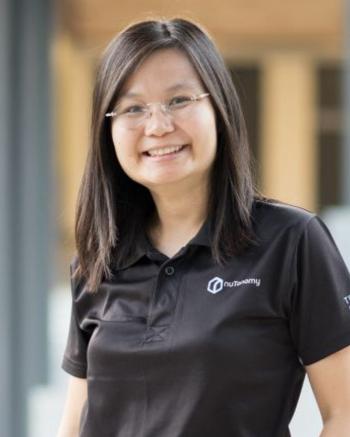Socially Responsible Human Cyber-Physical Systems
Bio: 
Tichakorn (Nok) Wongpiromsarn received the B.S. degree in mechanical engineering from Cornell University in 2005 and the M.S. and Ph.D. degrees in mechanical engineering from California Institute of Technology in 2006 and 2010, respectively. She is currently an assistant professor in the Department of Computer Science at Iowa State University. Her research spans several areas of computer science, control, and optimization, including formal methods, motion planning, situational reasoning, hybrid systems, and distributed control systems. Most of her work draws inspiration from practical applications, especially in autonomy, robotics, and transportation. A significant portion of her career has been devoted to the development of autonomous vehicles, both in academia and industry settings. In particular, she was a principal research scientist and led the planning team at nuTonomy (now Hyundai-Aptiv Autonomous Driving Joint Venture), where her work focused on planning, decision making, control, behavior specification, and validation of autonomous vehicles. She also led the Systems Team for Team Caltech in the 2007 DARPA Urban Challenge during her Ph.D.
Abstract:
As autonomy becomes commonplace, human CPS must be designed not merely to be correct and functional, but more broadly, to be socially responsible. Socially responsible human CPS must meet objectives beyond those typical goals of safety and performance, so that, depending on the application, they are customizable, responsive, ethical, free of blame, and socially aware. Addressing such complex objectives will require the CPS community to draw upon interdisciplinary expertise in control theory, human-machine interaction, formal methods, ethics, autonomous systems, human factors, cognitive psychology, cognitive control, and other related areas. What novel paradigms in the design of computing, communication, control, and learning are needed to enable socially responsible human CPS? How can we integrate qualitative, or subjective, elements of social responsibility into the development of new theories, models, methods, and algorithms for human CPS? This workshop will engage attendees on a broad range of topics, including characterization of social responsibility, advances needed to enable socially responsible human CPS, and opportunities and resources necessary to create such advances.